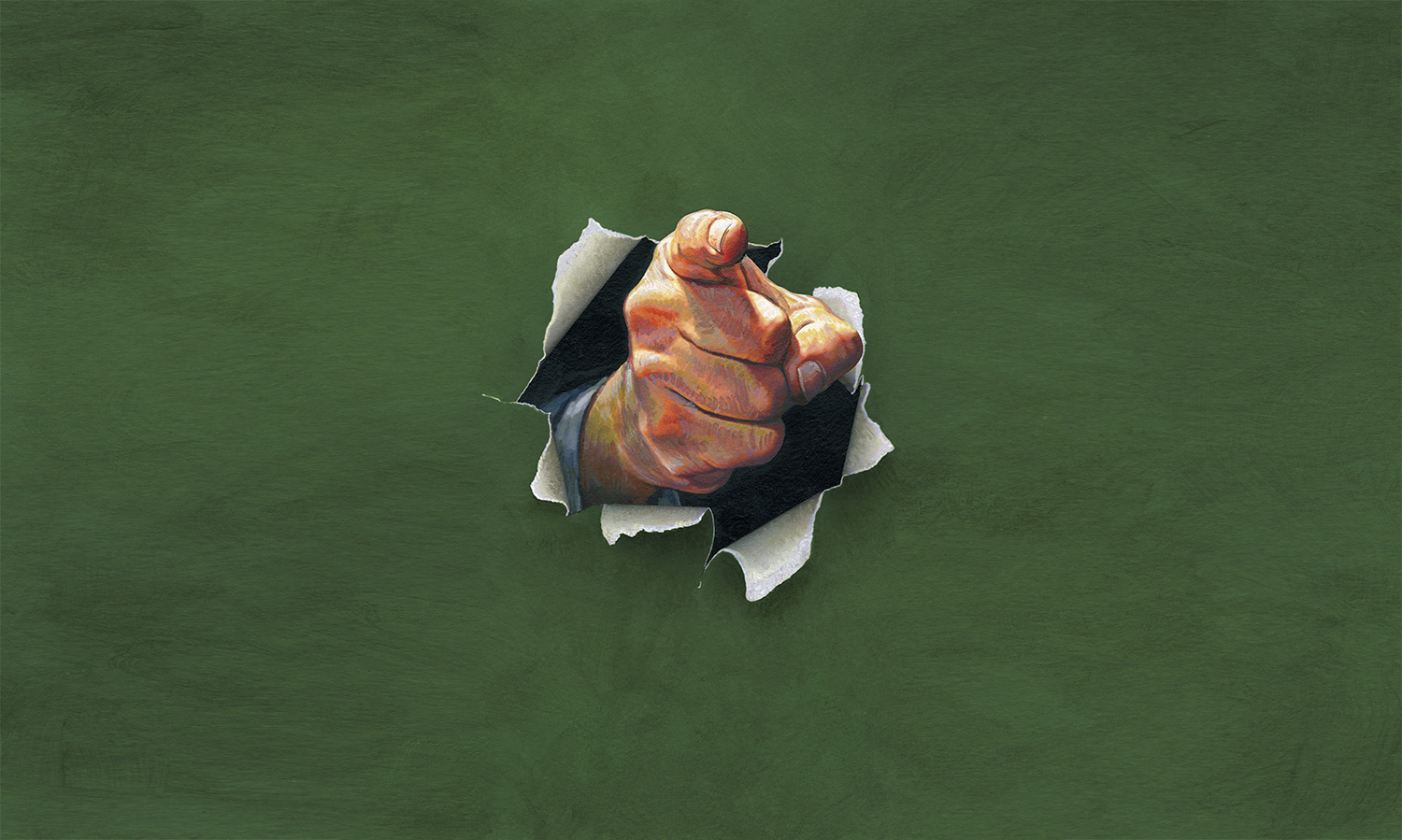Even Republicans are getting fed up with monopolies. Here's why.
Trust busting is becoming a bipartisan issue


A free daily email with the biggest news stories of the day – and the best features from TheWeek.com
You are now subscribed
Your newsletter sign-up was successful
One of the great issues in American politics, in hibernation for over 30 years, is poised to re-awaken. The issue is monopoly, and it hasn't been more relevant in over a century. Mergers and acquisitions have put a handful of bloated corporate behemoths in effective control of scores of American markets.
Anti-trust law, basically a dead letter since the Reagan administration, is making a comeback. It's time to start forcing business to compete again.
Monopoly is an inherent problem with capitalism driven by the obvious fact that businessmen don't like competition. No less than Adam Smith wrote: "People of the same trade seldom meet together, even for merriment or diversion, but the conversation ends in a conspiracy against the public, or in some contrivance to raise prices." Best to have a captive population of customers who have nowhere else to turn.
The Week
Escape your echo chamber. Get the facts behind the news, plus analysis from multiple perspectives.

Sign up for The Week's Free Newsletters
From our morning news briefing to a weekly Good News Newsletter, get the best of The Week delivered directly to your inbox.
From our morning news briefing to a weekly Good News Newsletter, get the best of The Week delivered directly to your inbox.
What's more, as Brad DeLong has written, corporations are hierarchical command-and-control bureaucracies. Without external market discipline, they readily develop the same pathologies that often plague ineffective government agencies — indeed, they can easily be worse, since at least with government departments one can write to an elected official somewhere and complain. Going to the DMV is often a pain, but I'd much rather get my license renewed than try to get Verizon to fix a piece of broken equipment.
Poor customer service is also simply good business for a monopoly. When one has lots of market power, it makes sense to attempt first-degree price discrimination — that is, changing the price for each customer so as to charge them their absolute maximum willingness to pay. The way American telecom companies often do this is by constantly nudging up your price until you get annoyed enough to threaten to cancel your service. Then when you contact them, they make the process as onerous as possible so you're more likely to simply give up in disgust and eat the higher price. Sound familiar?
For many years, conservatives justified creeping monopolization by shifting the standards by which business consolidation was judged. Instead of simply insuring competition in all markets, as was the pre-Reagan standard, they demanded evidence that a merger would actually harm consumers. That is much more favorable terrain for business and their pet lawyers and economists.
But today, the results of monopoly are so patently horrible that even some conservatives are beginning to come around. David Dayen reports that in the first Senate Judiciary subcommittee hearing on anti-trust in several years, both Democrats and Republicans expressed serious reservations about excessive market consolidation. Last year was the biggest one ever for mergers and acquisitions, and conservative stalwart Sen. Chuck Grassley (R-Iowa) worried that monopolization could taint seed supplies while Sen. Mike Lee (R-Utah) wondered if agencies were unprepared for yet another wave of consolidation:
A free daily email with the biggest news stories of the day – and the best features from TheWeek.com
Amazingly, Wednesday’s hearing showed that antitrust policy is not a partisan issue. It’s even become a point on the campaign trail: Hillary Clinton and Bernie Sanders have stressed greater antitrust enforcement and breaking up monopolies, and while not specifically talking antitrust, Donald Trump wants to inject competition into the drug industry. But the pressure from Congress is even more encouraging, because it could be all it takes to spur the agencies to do their job. [New Republic]
The best solution here for both sides may be a return to the pre-Reagan regulatory tradition of simple rules of thumb rather than hellishly complex calculations of consumer welfare, as Kevin Drum argues. Conservatives often complain (with some justification) that government agencies are not very good at implementing complicated regulatory schemes. But you cannot have anti-trust without some sort of government agency to enforce the rules. And without such an agency, you can't have the competition that supposedly delivers the free market goods.
Rules like "every major market must have at least five serious competitors" or "no company can acquire more than a 20 percent national market share" can't be justified as being the best of all possible worlds (because nothing can), but they are easy to understand and enforce. Best of all, the anti-trust legal framework is still on the books from over a century ago. The Federal Trade Commission and the Justice Department could simply decide to start enforcing the laws in the old way — especially if prodded by Congress.
At bottom, monopoly is a simple issue that virtually every citizen can grasp. Corporations want to get so big that they can dominate consumers and collect easy profits. It's obviously a huge problem today, as it has been in the past — as former Federal Reserve Chairman Alan Greenspan once said, "In 1911 we broke up Standard Oil — so what happened? The individual parts became more valuable than the whole." It's time to cut some monopolists down to size.
Ryan Cooper is a national correspondent at TheWeek.com. His work has appeared in the Washington Monthly, The New Republic, and the Washington Post.
